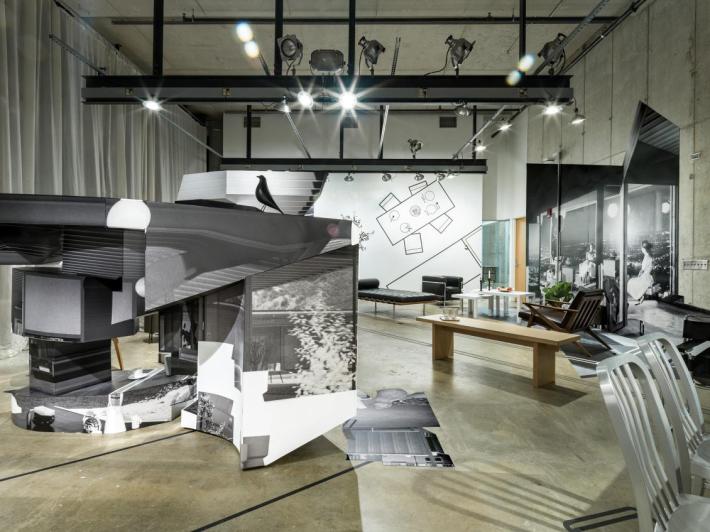Zelig Fok to Lecture At University of Houston’s Gerald D. Hines College of Architecture + Design
Visiting Assistant Professor of Architecture and 2021-22 LeFevre Fellow Zelig Fok is set to lecture at the University of Houston’s Gerald D. Hines College of Architecture + Design as part of their 2022-23 Lecture Series, Trans-Scalar.
Trans-Scalar poses the question of trans-scalar design via the social, cultural, historical, and environmental realms, and how designers respond to those responsibilities. Zelig's research focuses on the relationship between the built environment and its photographic representations and looks at the relevance of photography within architecture's disciplinary boundaries and their broader implications within contemporary image culture.
Historically, design disciplines have been attached to a specific range of scales, with the fields of industrial design, interior architecture, architecture, urbanism, and territorial design operating within their relative spectrums. However, the objects we design are not neutral assemblies of material forms. In every design decision, we mobilize energy, increase pressure, and transform the earth's system's morphology, affecting human and non-human life forms. Every design decision provokes ecological tensions, inequality, and disruptions that lead the planet to amplified natural catastrophes for which no one can quite be blamed. Design is trans-scalar. We just need to realize simple equations to take accountability and stand with the agency of our design decisions: Every aggregate produces a whole. Every solid material leaves behind its equivalent void somewhere else. How do we think and practice design ethically while acknowledging the objects we design are not innocent? To display the complex reality of design, we must disclose its trans-scalar nature. Objects of design are assemblages of many layers - the ecological, political, social, formal, material, technological, and environmental - all combined in ethical and aesthetic forms. When these layers come together in cohesive works, they disseminate knowledge by becoming paradigms. In this new era of ecological consciousness, design becomes an embassy, a cross-section of all these layers representing the myriads of scales in which every design decision operates from the molecular to the cosmic. The concept of trans-scalarity applies to the authors of the work in addition to the work itself. This theme embraces an inclusive range of identities across the categories of race, gender, and experience. In doing so, this series seeks also to bring, together recognized voices, emerging ones in order to provide a broad spectrum of viewpoints and experiences that represent the diversity of the Gerald D. Hines College of Architecture and Design.
Read more at the University of Houston




